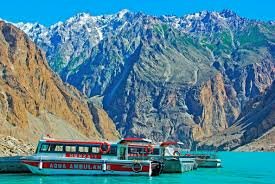High in the northern reaches of Pakistan, where rugged mountain spires scrape the sky and silence speaks louder than words, the Karakoram range offers more than just dramatic beauty—it offers sanctuary. In recent years, this ancient land of glaciers, alpine meadows, and pristine valleys has begun to emerge as a sought-after destination for wellness retreats that blend yoga, mindfulness, and nature immersion.
If you’re craving more than just sightseeing and want a journey that refreshes the mind, body, and soul, the Karakoram wellness experience may be exactly what you’re seeking.
Why the Karakoram for Wellness?
The Karakoram range—home to some of the world’s highest peaks including K2, Broad Peak, and Gasherbrum I and II—has long captivated mountaineers and trekkers. But its other gift lies in its tranquility. Unlike more commercialized mountain destinations, the Karakoram still feels wild, untouched, and sacred.
Key Advantages:
- Fresh, high-altitude air
- Crystal-clear glacial water
- Minimal light pollution
- Natural silence and solitude
These qualities create the perfect backdrop for practices like yoga, meditation, breathwork, and forest bathing.
Top Wellness Retreat Spots in the Karakoram
Several locations across Gilgit-Baltistan now host seasonal retreats, often led by certified local and international instructors. Here are some of the most notable:
1. Hopper Valley Retreat (Nagar District)
Set in the shadow of Golden Peak (Spantik), Hopper is known for its vast glaciers and pastel-toned landscapes. Yoga sessions here often take place on open meadows, with snow-capped summits as the only audience.
Highlights:
- Sunrise yoga on stone terraces
- Glacier walks as active meditation
- Evening fire circles for group reflection
2. Khaplu Palace Wellness Weekends (Baltistan)
The 19th-century palace-turned-hotel hosts weekend retreats that blend Sufi music, gentle yoga, and mindful movement. Think of it as a fusion of cultural heritage and body-mind alignment.
Activities Include:
- Guided meditation in royal gardens
- Sound baths using local instruments
- Organic meals sourced from palace gardens
3. Passu Glacier Healing Camps (Upper Hunza)
Passu’s dramatic landscape of jagged peaks and braided rivers is ideal for introspection. Some retreat programs here focus on chakra alignment and detox diets, often involving digital detox and full immersion.
Unique Features:
- Silence periods for mindfulness
- Fasting-friendly diet plans
- Nighttime stargazing meditations
A Day in a Karakoram Wellness Retreat
While every retreat varies, a typical day might look like this:
6:00 AM – Sunrise Yoga Start the day with asanas and sun salutations facing a glacier-fed valley. The cold mountain air enhances breath awareness and focus.
8:00 AM – Ayurvedic Breakfast Dishes often include herbal teas, buckwheat pancakes, local fruits, and honey. Meals are prepared fresh and served in community style.
10:00 AM – Nature Walk or Guided Trek Gentle hikes to nearby lakes, rock formations, or forest trails help participants connect with their surroundings.
2:00 PM – Restorative Yoga or Journaling Afternoons are often quieter, involving seated meditation, body scans, or creative practices like drawing and journaling.
5:00 PM – Group Workshop Topics vary: self-compassion, mindful eating, breathwork, or local spiritual wisdom shared by elders.
7:00 PM – Dinner and Reflection Circle Meals are followed by storytelling, poetry readings, or silent sitting. No phones. No distractions.
Who Are These Retreats For?
- Urban professionals needing a reset
- Creatives seeking inspiration
- Health seekers recovering from burnout
- Yoga practitioners wanting high-altitude practice
Whether you’re a beginner or an experienced yogi, the emphasis is on non-judgmental, inclusive wellness.
When to Go: Best Seasons for Wellness Travel
- Spring (April–June): Blooming valleys, mild temperatures
- Autumn (September–October): Fewer tourists, golden foliage
- Avoid: Winter due to snowbound roads and limited access
Tips for Planning Your Retreat
- Book Early: Retreats are small and often fill up months in advance
- Pack Light but Warm: Mountain nights are cold, even in summer
- Stay Hydrated: High altitudes can dehydrate quickly
- Listen to Your Body: It’s not about pushing—it’s about restoring
Also, consider extending your stay for a few days before or after to simply absorb the stillness without structure.
Eco and Cultural Respect
- Use biodegradable products
- Don’t photograph locals without permission
- Support local artisans and organic farms
- Choose retreats that hire local staff and source local ingredients
Many wellness retreats also donate a portion of profits to local education or conservation efforts, making your stay more impactful.
Personal Transformations: Stories from the Mountains
Participants often leave these retreats transformed:
- A graphic designer from Karachi rediscovered her love for sketching while meditating beside Attabad Lake.
- A banker from Islamabad overcame burnout and returned home with a renewed sense of balance.
- A couple from Lahore used a Hunza retreat to reconnect and celebrate their anniversary with mountain vows.
These are not just trips—they’re inner journeys facilitated by outer majesty.
Conclusion: The Mountains Are Calling—and They Heal
The Karakoram Mountains have long been a refuge for seekers—Buddhist monks, Sufi mystics, and modern adventurers alike. Today, wellness retreats in this magical region offer something more: a sacred pause in a world that’s always rushing.
By combining ancient wisdom, modern well-being practices, and raw natural beauty, the Karakoram is becoming a beacon for soulful travel in South Asia.
So roll up your yoga mat, inhale deeply, and let the silence of the mountains show you the way back to yourself.







